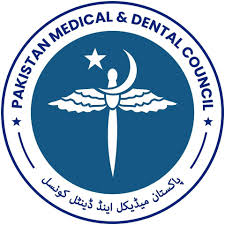Assessment of Knowledge, Attitudes and Practices (KAP) Towards Climate Change Education among Teaching Staff and Medical Students of CMH Lahore Medical College, Lahore
DOI:
https://doi.org/10.37018/JFJMU/TAY/1487Keywords:
climate change education, knowledge, practices, attitudes, teaching staff, , medical studentsAbstract
Background: Climate change education is a multidisciplinary approach aimed at increasing knowledge and understanding of the causes, impacts, and solutions related to climate change. This study aims to assess knowledge, attitude, and practices (KAP) of medical undergraduate, post-graduate students and teaching staff pertaining to climate change education (CCE) and to foster sustainable practices and amplify awareness and understanding of climate change among healthcare professionals within the country.
Subjects and methods: The Department of Community Medicine conducted a cross-sectional survey at CMH Medical College, Lahore, involving 267 medical undergraduate, postgraduate students and teaching staff who willingly volunteered to take part. This study took place from January 2023 to June 2023. A self-designed questionnaire, with a calculated reliability of 78% using Cronbach's Alpha in SPSS version 20 was employed. This questionnaire encompassed demographic details and inquiries related to Knowledge, Attitudes, and Practices (KAP) among medical students and teaching staff. The questionnaire included four sections. First section evaluated participants demographic information which included age, gender and discipline. Second section consisted 18 survey questions regarding knowledge of participants.
Results: Out of 267 participants, 110 (42.8%) were males and 157 (61%) were females. This study revealed that female students had more knowledge as compared to male students and teaching staff and this difference was statistically significant (p=0.026). In case of attitude, results showed 36.4% of males and 63.6% of females showed good attitude, with a statistically significant difference (p=0.014).In practicing habits regarding CCE, results showed 57.8% of females as compared to 42.2% of males had good practices.
Conclusion: Female medical students were more aware, showed positive attitude and practiced good habits towards CCE as compared to male students followed by teaching staff.
Published
How to Cite
Issue
Section
License
The Journal of Fatima Jinnah Medical University follows the Attribution Creative Commons-Non commercial (CC BY-NC) license which allows the users to copy and redistribute the material in any medium or format, remix, transform and build upon the material. The users must give credit to the source and indicate, provide a link to the license, and indicate if changes were made. However, the CC By-NC license restricts the use of material for commercial purposes. For further details about the license please check the Creative Commons website. The editorial board of JFJMU strives hard for the authenticity and accuracy of the material published in the journal. However, findings and statements are views of the authors and do not necessarily represent views of the Editorial Board.

















